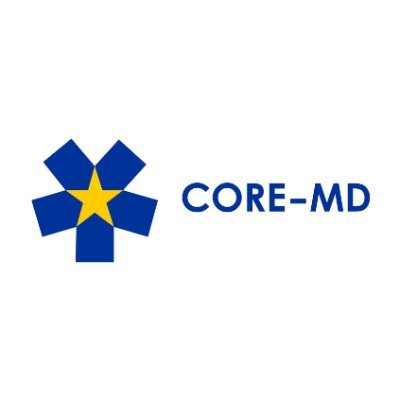EAP BLOG – COVID-19 SERIES (#4) | CRITICAL ETHICAL DECISIONS ON THE FRONTLINE – LEARNING FROM THE ADULTS
April 23, 2020

Italy is facing a massive burden from the coronavirus disease 2019 (COVID-19) pandemic.
Since Feb 21, 2020, when the first case of COVID-19 was recorded in Italy, the National Healthcare Service, which offers universal access to health care, has faced increasing pressure, with 178 972 total cases of COVID-19 and 23 660 deaths as of April 20th, 2020 (1). Though Italy’s healthcare system is highly regarded and has 3.2 hospital beds per 1000 people (as compared with 2.8 in the United States) (2), it has been impossible to meet the needs of so many critically ill patients simultaneously.
In order to support doctors in making burdensome choices and to make explicit the allocation criteria used, the Italian Society of Anesthesia and Intensive Care (SIAARTI) has produced a brief document of recommendations (with 15 statements) concerning the ethical principles of reference for this specific context (3).
The document, which was prepared in only 48 hours, was an attempt to answer the cry for help by hundreds of intensivists in the face of an unprecedented situation. The main problem for adult intensivists in Lombardy and Veneto regions can be so summarized: “The magnitude of this demand may cause an imbalance between the real clinical needs of the population and the effective availability of intensive resources.” (3)
The COVID-19 outbreak forced North-Italian hospitals to deal with the so-called “disaster medicine”, where traditional criteria for accessing intensive care and for discharging patients (clinical appropriateness and proportionality of care) were not enough, and therefore they had to be integrated with other criteria related to distributive justice and appropriate allocation of limited healthcare resources.
First of all, the document states that the application of rationing criteria can be justified only after every possible effort has been made (including those in charge of managing public health systems) to increase the availability of resources and to transfer patients.
The recommendations had, among others, the two following aims:
(A) to relieve clinicians from a part of the responsibility in the decisions making process, which can be emotionally burdensome, if carried out in solitude;
(B) to make the allocation criteria of limited healthcare resources explicit, and therefore subject to public scrutiny and to critical analysis.
According to the SIAARTI recommendations, admission and discharge under exceptional circumstances must be flexible and can be locally adapted according to the availability of resources, the potential for inter-hospital patient transfer, the ongoing or foreseen number of hospital and ICU admissions. These criteria apply to every patient potentially in need of ICU admission, not only to Covid-19 infected patients.
In this extraordinary circumstances, it has been necessary to rely not only on clinical criteria, but also on criteria aimed at maximizing the benefits for the largest number of people. Indeed, in the worst-case scenario of complete saturation of ICU resources, relying on the “first come, first served” criterion would ultimately result in an unwise use of precious resources and in an increased number of deaths.
These reflections are very challenging and can only partially relieve clinicians from the thorny situation they had to deal with. As paediatric intensivist, we know that the paediatric setting is only marginally touched by the COVID-19 pandemic and that paediatric intensive care units (PICUs) and neonatal intensive care units (NICUs) in Europe will very probably not be hit as much as adult ICU.
However, we have to keep in mind that if the pandemic will have a significant although indirect impact on paediatric healthcare services. This is the reason why the ESPNIC Ethics Section considers essential to carefully reflect on the specific responsibilities of paediatric healthcare professionals during this predicament and on the ethical principles that ought to guide their decision-making (4). The pandemic will have a profound effect not only on hospital care re-organisation (redeployment in adult ICU, interruption of elective surgical activity, less accessibility to standard care), but also on the physical, psychological and moral impact on healthcare professionals.
We need to ensure consistency between centres and across regions, with both administrative and regulatory oversight. Crucially, there must be both real-time and future support for the teams making these challenging decisions.
About the authors:
List of Authors
Anna Zanin. Md, MSc
PICU san Bortolo Hospital
Vicenza (Italy)
Espnic trainee representative
Alberto Giannini, MD
Unit of Pediatric Anesthesia and Intensive Care
Children’s Hospital
ASST Spedali Civili
Brescia (Italy)
Enrico Furlan, PhD
Researcher in moral philosophy and bioethics
Department of Molecular Medicine
University of Padova (Italy)
References
- https://www.worldometers.info/coronavirus/country/italy/
- https://www.epicentro.iss.it
- http://www.siaarti.it/SiteAssets/News/COVID19%20-%20documenti%20SIAARTI/SIAARTI%20-%20Covid19%20-%20Raccomandazioni%20di%20etica%20clinica.pdf
- https://espnic-online.org/News/Latest-News/ESPNIC-Ethics-Section-COVID-19-Pandemic-Ethics-Statement

